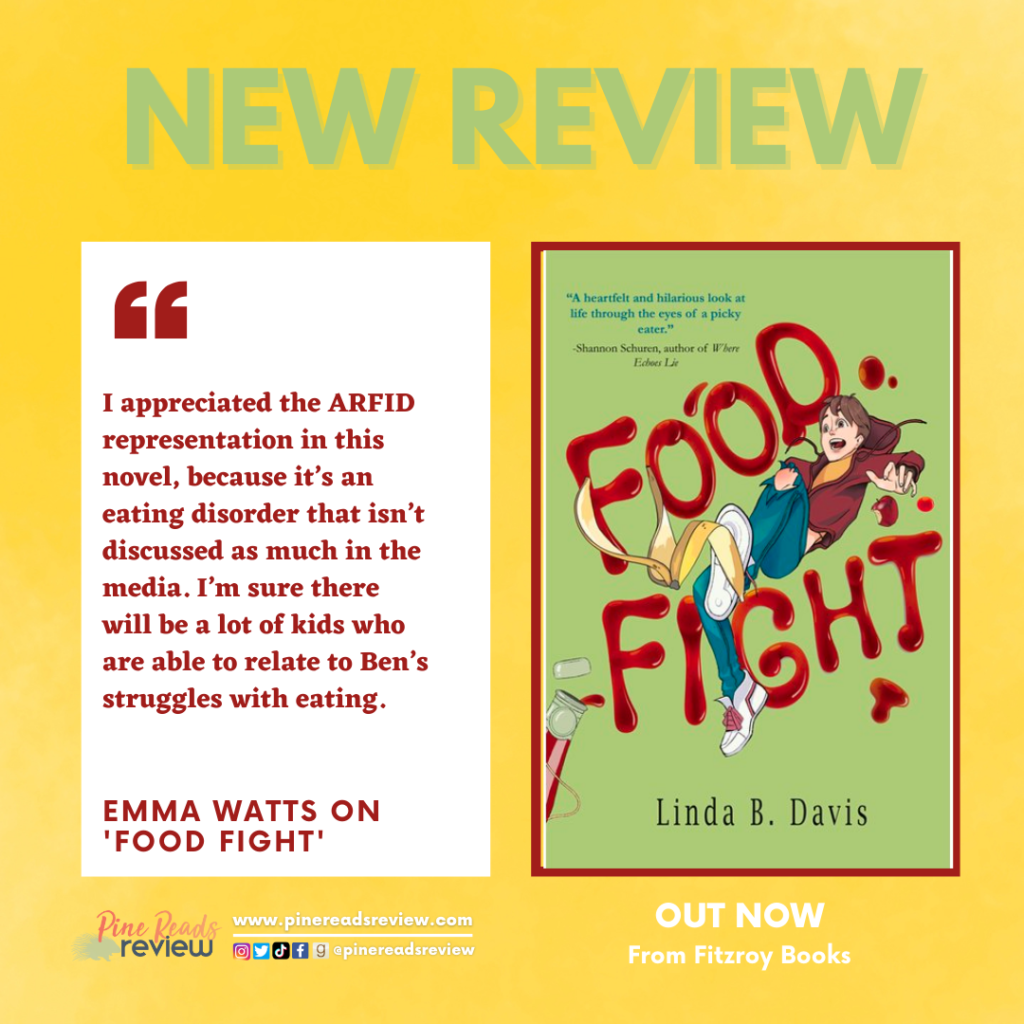
Food Fight by Linda B. Davis
Out now from Fitzroy Books; 248 pages
Content Warning: Discussion of eating disorders, bullying
About the Author: “Linda has always been curious about why we do the things we do. She holds master’s degrees in social work and developmental psychology. As a social worker in a community mental health setting, Linda became passionate about the need for accurate and accessible mental health information in children’s literature” (Bio from Author’s Website).
Find Linda B. Davis on the following platforms:
Food Fight follows a young boy named Ben Snyder who is struggling with Avoidant Restrictive Food Intake Disorder (ARFID.) His diet consists of only 10 foods, and, even though his parents have a problem with Ben’s restrictive eating habits, his friends don’t mind. However, their attitudes change after the first week of middle school, when a boy named Darren starts hanging out with Ben’s friend group and making fun of Ben’s lunches everyday. Darren notices and makes fun of everything Ben refuses to eat — pizza, cool ranch doritos, ice cream. Ben can never escape Darren’s snide remarks about his diet. To make matters worse, Ben’s best friends think Darren is hilarious and they never stand up for Ben. With a two-day field trip with a small, disgusting-looking menu looming ahead, Ben has to decide if he’ll skip the trip altogether and risk getting edged out of his friend group by Darren, or if he’ll try to survive the trip on only flapjacks and granola bars.
For the most part, I enjoyed reading this novel. I thought that Ben had a really distinctive voice, and I enjoyed Linda B. Davis’ writing style. I appreciated the ARFID representation in this novel, because it’s an eating disorder that isn’t discussed as much in the media. I’m sure there will be a lot of kids who are able to relate to Ben’s struggles with eating. However, I do wish that there had been a little bit more discussion about Ben’s eating disorder with Ben’s family and his friends. His father was very dismissive of Ben’s struggles, and so were Ben’s friends. His friend group consistently stood idly by and let Ben be bullied for his eating habits, often laughing along with the jokes. I wish that there had at least been a discussion about the harmful actions of Ben’s friends and family, but the bullying was quickly forgiven by the end of the book, which made the conclusion feel less satisfying to me as a reader. Besides this complaint, however, I did enjoy the rest of the story and would recommend it to people with ARFID or to people who want to learn what it’s like to live with this little-known eating disorder.
(Pine Reads Review would like to thank Fitzroy Books for sending us a copy of the book in exchange for an honest review. Any quotes are taken from an advanced copy and may be subject to change before final publication.)
PRR Assistant Director, Emma Watts